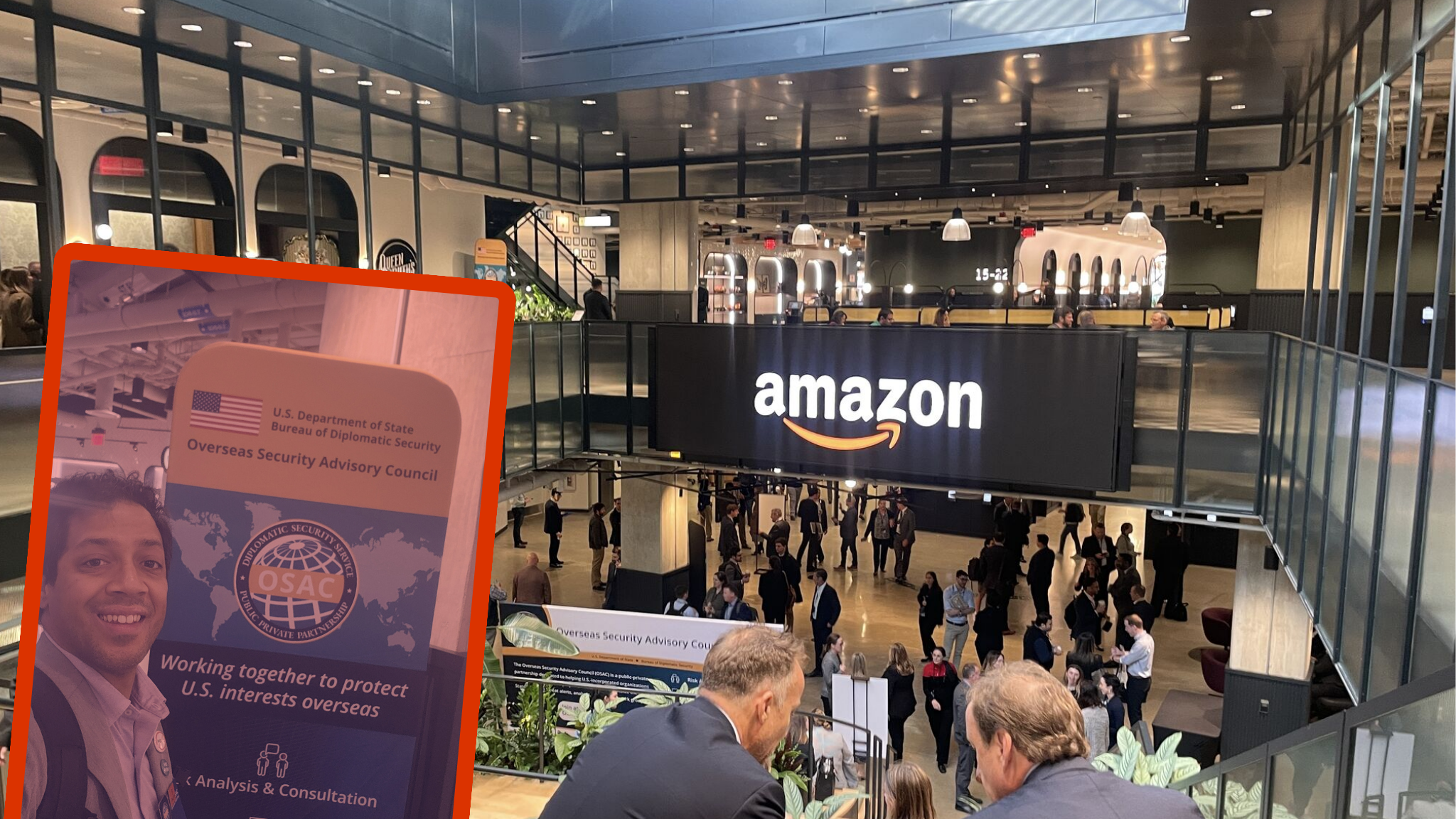I’m coming up on my five-year anniversary of working at Factal, but I’d never attended OSAC’s Annual Briefing until this year. The conference is technically a day and a half, but everyone calls it #OSACWeek, and with good reason. There’s a bevy of learning and networking events all week, and my teammates and I took full advantage, covering the DC area to connect with Factal members, partners and friends.
The Briefing and satellite events are all covered by the Chatham House Rule, so I can’t share the identity of specific speakers or organizations that presented the following insights. But I can thank my colleagues! Elissa Olinsky and Cory Bergman took great notes in Factal’s chat channel for the event and helped affirm some of my own observations.
Here’s four themes from the Briefing I expect to resonate long after the calendar flips to 2025:
Data alone won’t get your projects prioritized
CSOs and other leaders with C-suite access have more data than ever to present to their executives, whether it’s from products like Factal and our partners or in stunning software like Tableau and ArcGIS.
But that’s not enough when every other department is making the same progress. I heard two great tactics for getting sign-off on projects:
- Engaging other functions – like human resources, crisis management, communications, cybersecurity and business continuity – to build consensus and collaboration even before presenting projects
- Improving your storytelling skills. “Data alone is not compelling – data with a narrative is compelling,” one presenter shared.
AI is here, but humans-in-the-loop are a necessity
I might be a little biased here – Factal cofounder Cory Bergman presented a practical guide to AI tools as the conference came to close, and it was standing room only.
When I was explaining Factal at GSX in September, I tended to joke about our powerful AI capabilities – “I’m mentioning it, but I know you’ve heard ‘AI’ a hundred times already today” – and people would nod along with me. At the Annual Briefing, LLMs tuned for security work on internal knowledge came up in conversation with much more excitement, and a little anxiety.
Risk analysis can get off to a fast start using AI, but presenters and attendees alike stressed that humans need to carry products to the finish line. Regional nuances and larger geopolitical contexts require a human touch. While managers are excited about the productivity gains, individual contributors want to make it clear that they’re still providing the insight that enables organizations to make the right decisions, not the robots.
Cross-company collaboration gets formalized
This is probably a theme that gets highlighted every OSAC Week, but I was heartened by just how much teams in the same industry are sharing knowledge and intelligence. Security’s a team sport, and the benchmarking that might have required a Rolodex decades ago (remember those?) is more accessible than ever to newcomers.
OSAC’s own common interest committees are just the start. I heard about everything from Whatsapp group chats for major events to regular video calls between industry peers.
The global order begins to wobble
OSAC Week feels a bit like a family reunion. I’m fortunate enough to have connected with a lot of the folks attending, so I got to feel like a distant cousin. But there was an undercurrent in lots of the conversations about the reshuffling in geopolitics after a year where sitting governments were consistently voted out across ideologies. This showed up on stage, too – reviewing the possibility of civil unrest and regime change were hot topics in regions around the globe.
One leader I can quote is Leon Panetta, the speaker at the annual TSF Dinner I was fortunate enough to attend. The former Secretary of Defense and CIA Director spoke forcefully of the importance of the moment, especially for the US. “We are facing more flashpoints in the world [than] we’ve faced since World War Two,” Panetta declared. “The question is, [does the US] act by leadership, or by crisis?”
After years of crisis, I left OSAC feeling encouraged about the leaders who will be striving to ensure security around the globe – and ready to book my tickets for next year.

